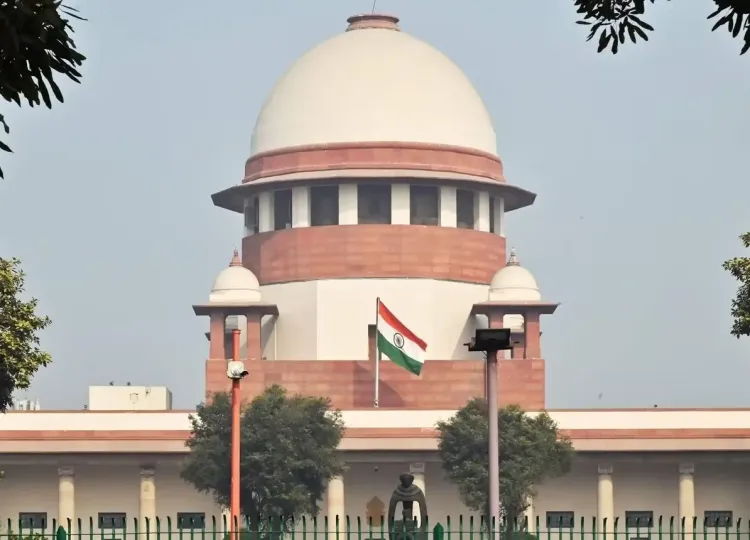Akhil Bhartiya Sant Samiti Challenges Places of Worship Act, 1991 in Supreme Court

New Delhi, Jan 6 (NationPress) The Akhil Bhartiya Sant Samiti, an assembly of 127 sects within Sanatan Dharm, has lodged an intervention application with the Supreme Court disputing the legitimacy of certain clauses in the Places of Worship (Special Provisions) Act, 1991. This Act prohibits the initiation of lawsuits aimed at reclaiming places of worship or modifying their character as it was on August 15, 1947.
The petition argues that Sections 3 and 4 of the Act contravene Articles 14, 15, 21, 25, 26, and 29 of the Constitution of India, as these provisions obstruct judicial review—a fundamental aspect of the Indian Constitution. It claims these sections establish an arbitrary cut-off date, disregarding historical injustices and infringing upon the religious liberties of Hindus, Jains, Buddhists, and Sikhs. Moreover, it is said to violate the principle of secularism by favoring one community over others.
The application points out that the law has obstructed remedies against unlawful encroachments on places of worship and pilgrimage sites, leaving followers of Hinduism and other religions unable to file lawsuits, thus allowing the illegal actions of invaders to persist indefinitely.
“Upon the enactment of the Places of Worship (Special Provisions) Act 1991, the Central Government established an arbitrary and irrational retrospective cut-off date, asserting that the character of places of worship/pilgrimage must remain as it was on August 15, 1947. The Act prohibits any lawsuits regarding disputes caused by encroachment by fundamentalist and law-breaking invaders, leading to the abatement of such proceedings,” stated the application, submitted by advocate Atulesh Kumar.
It further contends that the Centre cannot restrict access to lower courts, appellate courts, and constitutional courts for affected citizens, nor can it revoke the powers of High Courts and the Supreme Court as provided under Articles 226 and 32 of the Constitution.
“The injuries inflicted upon Hindus and other religious followers are evident, as Sections 3 and 4 of the Act have stripped individuals of their right to seek judicial remedies, thereby violating the principles of natural justice,” the plea argued.
According to the application, the disputed law not only infringes on the right to pray, practice, and propagate religion (Article 25), the right to manage and maintain places of worship-pilgrimage (Article 26), and the right to preserve culture (Article 29) but also contradicts the government’s obligation to protect historical sites (Article 49) and safeguard cultural heritage (Article 51A).
The Sant Samiti advocates for the interests of seers, mutts, and temples, with Swami Jeetendranand Sarswatee serving as its General Secretary. According to the computerized case status, the group of petitions challenging the Places of Worship Act is scheduled for a hearing on February 17.
An interim order issued on December 12, 2024, by the Chief Justice Sanjiv Khanna-led Special Bench, mandated that no new lawsuits could be filed under the Places of Worship Act nationwide, and no final or effective orders would be rendered in pending cases until further directives were issued.
The Special Bench, which also includes Justices Sanjay Kumar and K.V. Viswanathan, instructed the Union government to respond to the group of petitions challenging the validity of the 1991 Act within four weeks.








